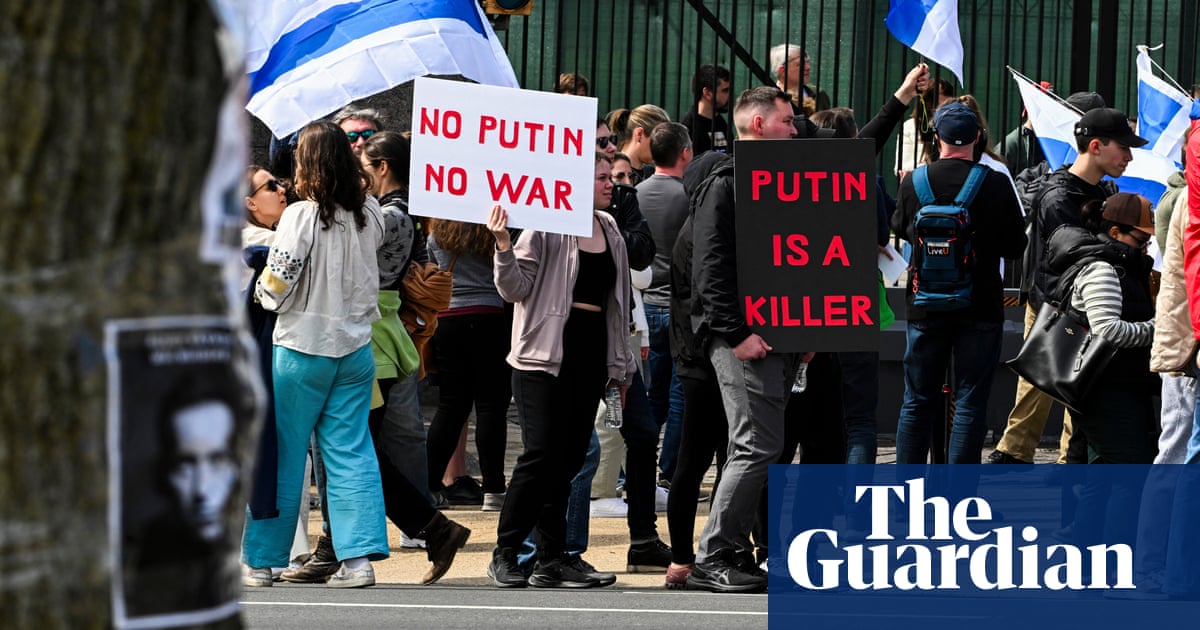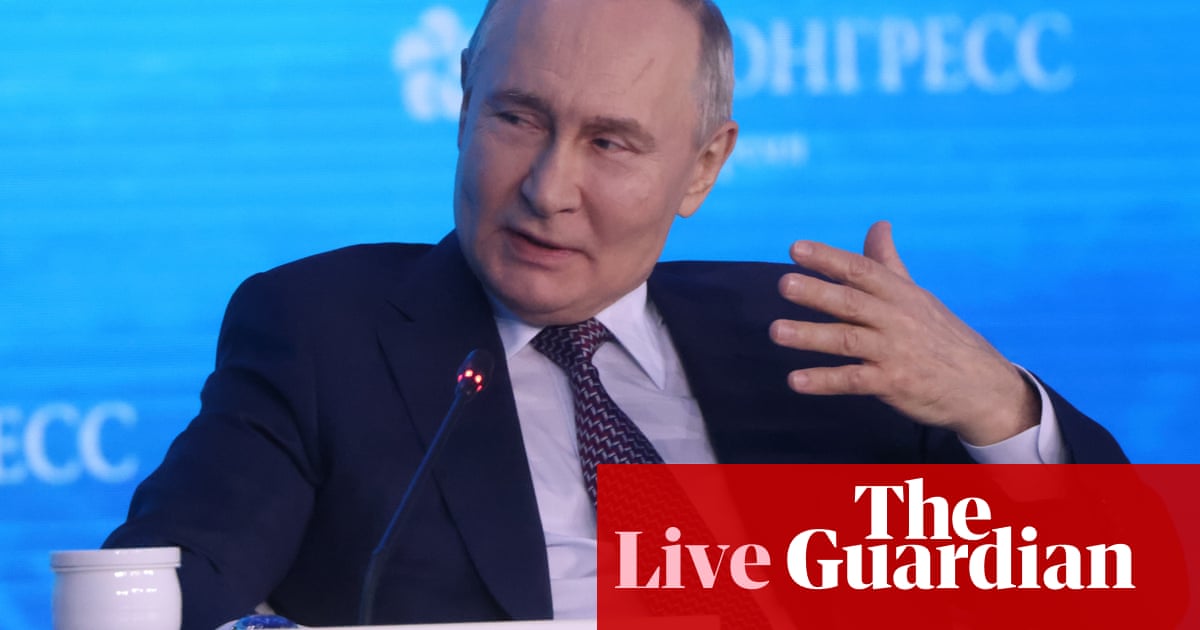As Donald Trump negotiates with Russia, Europe needs statesmanship and strategic thinking rather than knee-jerk emotive rhetoric and moral panic.
Europe’s weakness has never been so openly on display. President Donald Trump has shattered the existing framework of Western support for Ukraine. America has officially abandoned a hugely costly and failed nineteen-year quest to expand NATO into Ukraine. The commitment to ensuring Kyiv regains its pre-2014 territory is now canceled. The United States will neither send troops to Ukraine nor extend Article 5 to any Western “peacekeepers” deployed there.
Europe is now expected to foot the bill of defending and rebuilding Ukraine while America seeks to recoup some of the $175 billion it has spent on the war with a deal granting it ownership of Ukrainian rare earth minerals. According to Special Envoy for Ukraine and Russia Keith Kellogg, Europe won’t even have a decisive say in the deal America makes to end the war. At an emergency summit in Paris called straight after a traumatic Munich Security Conference, Europe’s leaders could not agree among themselves on any new common position.
For Europe’s pro-Ukraine commentariat, this is nothing short of a nightmare. They, as well as most European leaders, have spent three years ignoring or outright denying every sign that the West is unable to defeat Russia in Ukraine. At every juncture, they wanted to spin the roulette wheel of escalation “just one more time” to weaken Russia.
They systematically ignored the evidence of Ukraine’s military decline and still call for yet more support. Their support for Ukraine was once encapsulated by the phrase, “We stand with Ukraine for as long as it takes.” In 2024, it shifted to “Ukraine is on an irreversible pathway to NATO, and we must put them in the strongest possible negotiating position.” Now, in 2025, there is a third version: “No negotiations on Ukraine without Ukraine” and “peace through strength.”
What does this new slogan entail? Polish foreign minister Radosław Sikorski characterizes the conflict as a “classic colonial war” that could continue for another ten years. Europe’s hardliners are quite prepared to watch Ukraine turn into a Syria-style failed state as long as Russia does not win. The moral concern to stop Putin does not, however, extend to the Ukrainian people themselves, who are to be sacrificed for the greater good of weakening and containing Russia. The hardliners are proposing a truly nightmare scenario: Europe prolongs a war it cannot win until Ukraine’s collapse opens a pandora’s box just as America walks back its security commitments.
NATO Secretary General Mark Rutte and Volodymyr Zelensky call for a rapid burst of defense spending, implying that Europe’s GDP—ten times larger than Russia’s—can be rapidly converted into an effective and deployable military force. This ignores the basic facts on the ground. The balance of power has swung in Russia’s favor. Ukraine is running out of men. Lithuania’s Defence Minister admits the Russian army is three times bigger than it was in February 2022. Zelensky reports the Russian army is about to expand by another 150,000. Meanwhile, Europe cannot ramp up defense production in time to save the situation; Russia is outproducing them.
Independent reports have established the woeful state of Europe’s leading militaries, deficient not only in trained soldiers but also in weapons and equipment, much of which has already been donated to Ukraine. Building a European army without U.S. support or leadership is an unprecedented challenge that will take a decade. The fundamental disagreement among European leaders on deploying “peacekeepers” to Ukraine points to a deeper problem. Europe can talk the talk but cannot walk the walk. Without muscle or a unified plan, Europe cannot take Russia on now; a deal is a necessity.
The West has played its hand, from weapons deliveries to sanctions and diplomacy to isolate Russia. There is strong evidence that Russia’s economic problems in 2025 will not be serious enough to weaken its war effort. Yet, many influential voices in Europe are stuck repeating the same old tropes for why the war must continue.
The first trope is on Russian casualties (outlandishly claimed to be rising toward 1 million), which is used as an argument for continuing the war on the grounds that “Ukraine can still fight.” Meanwhile, silence reigns on the subject of Ukrainian losses. The hardliners do not want to admit the depth of Ukraine’s manpower problem. If they fail in their drive to mobilize eighteen to twenty-four-year-old men, they will not be able to hold the frontlines. Given the news of U.S.-Russia diplomacy, can we expect huge numbers of young people to sign up to die in a war that may soon be over?
The second trope is that Russia cannot be trusted under any circumstances. “Appeasement” of Russia will embolden its imperial expansion. There is a clear contradiction between the claim of Russian losses and the assumption of continuous Russian expansion. If Russia is already so weakened, how could it contemplate invading a NATO country? Yet, we are told Russia is simultaneously on the way to a 1917-style regime collapse and that it is ready to roll through Europe as the latest incarnation of Nazi Germany.
Fears of further Russian expansion into the Baltics ignore the fact that Russian society, while supportive of their country’s war effort, broadly wants peace. The loud, radical, warmonger voices in Russia do not reflect broader elite and public attitudes. There is no support in Russia for endless territorial expansion. Indeed, there are strong grounds to believe the narrative of Russia’s unquenchable thirst for imperial glory is partly a Western fantasy imposed from without. Inside Russia, the Ukraine conflict is viewed generally as a defensive war against NATO expansion.
By all accounts, Trump’s pivot to peace is a rejection of dangerous hardliner delusions and a victory for common sense. As U.S. defense secretary Pete Hegseth put it, the new approach is based on the “recognition of hard power realities on the ground.” Europe’s leaders must now adapt sensibly to this new reality. In pitching to continue the war without U.S. backing, Europe’s hardliners are selling a costly recipe for risk and insecurity in Europe. Europe’s taxpayers are asked to foot the bill while suffering in austerity and recession.
Neither Trump’s bold talk nor the hardliner rhetoric should distract Europe from the most important point: a complex deal is needed to secure peace in Ukraine and Europe. What is needed is a major rethink of how Europe can achieve lasting peace in the continent. Europe could and should be worried about the signals from Washington that shatter the fundamentals of our security thinking. It is statesmanship and strategic thinking—rather than kneejerk emotive rhetoric and moral panic—that is desperately needed. As part of a fundamental shift towards strategic autonomy, Europe will need to reconsider its relations with a range of countries, including Russia. It is time to accept that a lasting peace in Europe without the inclusion of Russia is impossible.
While building a defense deterrent is a necessity, it must be recalled that the EU’s greatest achievement is ushering in eighty years of peace and prosperity to the continent. This should be the desired trajectory. The sooner the war ends, the sooner taxpayer money can be spent on rebuilding and integrating Ukraine into the EU. When it comes to negotiations, Europe’s leaders must start talking about the world as it is, not only about how they want it to be. The statements of Trump, Hegseth, and Kellog may be bitter pills to swallow. Yet, for Europe, this is a necessary prescription that is long overdue.
Matthew Blackburn is a Senior Researcher at the Norwegian Institute of International Affairs’ Research Group on Russia, Asia, and International Trade. He is also an affiliated researcher at the Institute of Russian and Eurasian Studies at Uppsala University. His research mainly focuses on the politics of contemporary Russia and Eurasia, including both domestic political systems and interstate relations. He is engaged in research on Iran-Russia-China cooperation for the Norwegian Geopolitics Centre and is a research coordinator for The Civilizationalism Project based at Stanford University.
Image: Shutterstock.com
Article by:Source:














